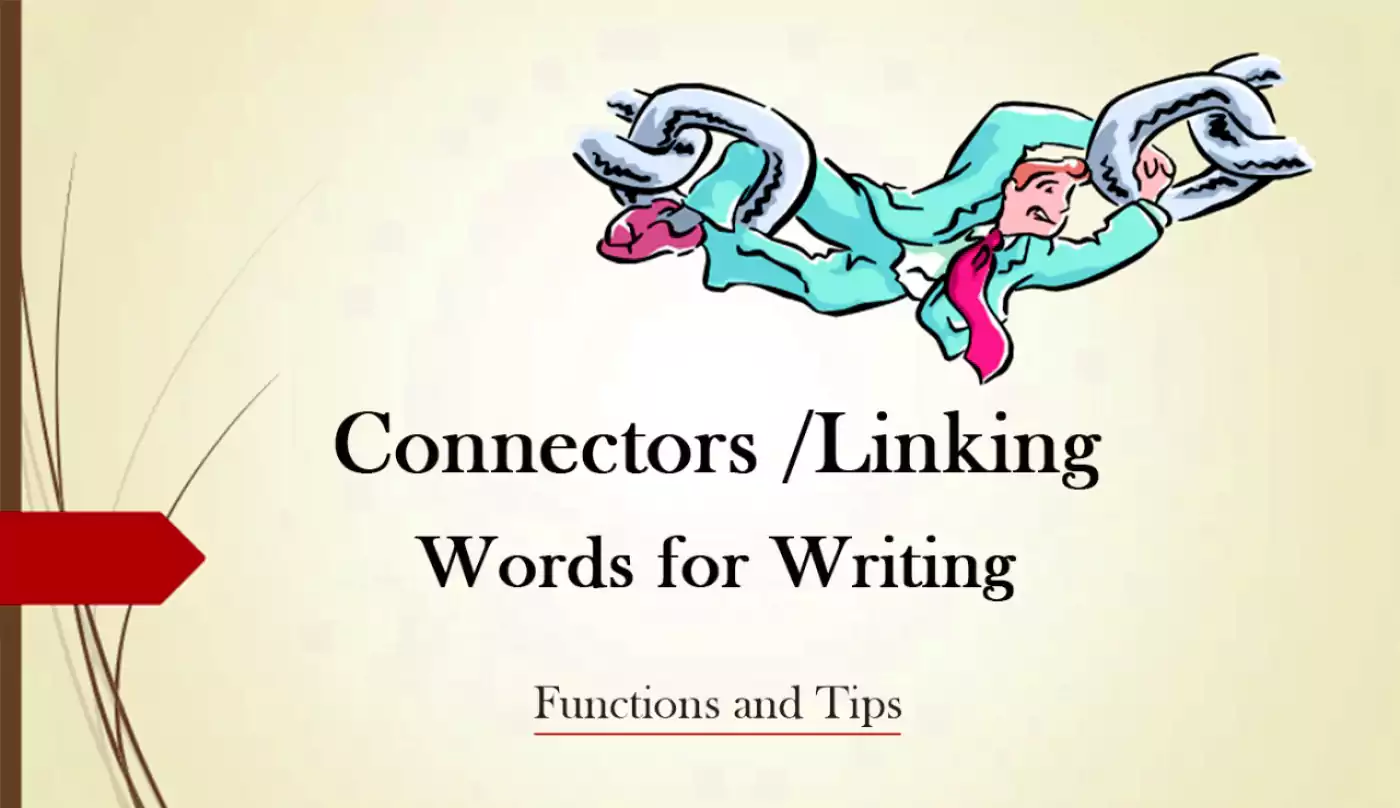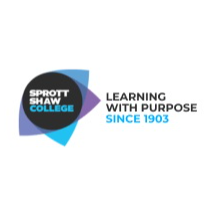• IELTS
Connectors /Linking Words for Writing - Functions and Tips
30210 Reads
3 min Read
- Connectors play an essential role in making any language, especially English, more understandable and cohesive.
- For students preparing for tests like IELTS, correct usage of linking words and connectors is important to score high in writing section.
- The blog post presents numerous trending connectors/linking words along with tips to use these correctly.

IELTS is one of the most prestigious English language proficiency tests accepted by the majority of universities worldwide. The exam is designed to test candidates' English proficiency based on their reading, writing, listening, and speaking skills. To score well on the test, every test taker must have complete knowledge of grammar and the right choice of words, which are fundamentals to any language.
Even with a thorough knowledge of grammar rules, candidates often find it difficult to score well on the test as they fail to use the correct linking words to make their points more impactful. Adverbs, also known as linking words or connectors, are by far the simplest way to link phrases or concepts together with a single word. Such linking words or connectors enhance the readability of the entire phrase, and, if used wisely, connectors in IELTS can help leave a good impression on the mind of the examiner.
In any case, the following advice can help you if you run into trouble using these linking words or connectors.
Importance of Connectors/Linking Words for IELTS Writing
In order to get the desired band score, candidates must have complete knowledge of IELTS, including its format and marking parameters. Presenting the expressions in a coherent and cohesive manner is an important criterion for the IELTS writing task, consisting of 25% of the total mark in the writing section. The use of linking words in IELTS helps to add flexibility and accuracy to the expressions. Below are some other important reasons to use linking words or connectors:
- Connectors make the writing more structured, helping the candidate to support their ideas using words like firstly, secondly, lastly, etc.
- Words like in addition to, furthermore, moreover, etc. help in adding more information to the write-up.
- Linking words provides meaning to sentences that would otherwise be complicated.
- These also help the readers comprehend the connections between one sentence and another.
- They aid in understanding the question's intent and also provide a proper response.
Tips for using Connectors/Linking Words for IELTS Writing
While preparing for IELTS, candidates often end up stuffing too many connectors in their writing in the hope of scoring high. This is a common mistake to avoid, as excessive use of linking words only reduces the readability of the task. When using linking words or connectors in IELTS writing, keep the following advice in mind:
| Do not use too many Connectors | Students tend to use connectors in every sentence. Though, it is accurate grammatically, it unnecessarily disturbs the flow of writing and makes the written work look mechanical. |
| Use Linking Words wisely | Several words and phrases can be used as linking words but the use of these linking words has to be in the context of the writing and accurate. |
| Use a variety of Connectors | It means that you should not repeat the same linking words again and again. You ought to use a variety of these connectors to fetch high bands in IELTS writing tasks. |
| Do not mix up the linking words | You should make sure that the linking words you are using should be meaningful to that sentence. |
Common Connectors/Linking Words for IELTS Writing
Correct use of linking words is as important as grammar for IELTS. The table below is curated to provide brief information on the usage of connectors, along with a suitable example.
| When Writing | Linking Words / Connectors |
| Opinion |
|
| Agreement / Disagreement |
|
| Examples |
|
| Listing Points |
|
| Reasons and Causes |
|
| Extra Information |
|
| Results and Consequences |
|
| An Indication of Time |
|
| Highlighting or Emphasising |
|
| Presenting Contrast |
|
| Presenting Comparison |
|
| Conclusion |
|
Let’s Practice
Studying abroad can be an enriching experience for international student, as it broadens their horizons in more than one way. ___1___ it exposes them to new cultures and customs. Adjusting to a different way of life allows students to challenge their preconceived notions and develop a more tolerant and open-minded perspective. Conversely, travel can ___2___ strengthen their appreciation for their own culture. By observing the differences, students gain a deeper understanding of their own traditions and values. ___3___, travel often involves learning a new language, even if it's just basic phrases. This ___4___ enhances communication skills ___4___ fosters a sense of accomplishment and boosts confidence. ___5___, traveling equips students with valuable life skills, fostering cultural awareness, personal growth, and a spirit of adventure
Hints:
1. Sequencing
2. Addition
3. Addition
4. Result
5. Conclusion
Achieving a higher band score does not solely depend on the knowledge of the language but also on the level of practice for the test. IELTS is a popular English language proficiency test that examines a candidate’s knowledge on different parameters in a specified time. Regular practice helps test takers get an understanding of the test format and adapt to the time allotted for every section. Connect with the expert trainers of Canamprep IELTS Coaching Institute to learn the tips for scoring high in IELTS, along with the latest practice tests based on the current test guidelines and patterns.
FAQ
Get great articles direct to your inbox
The latest news, articles, and resources, sent straight to your inbox every month.
Popular Universities to Study Abroad
World class education waiting for you.

Charles Sturt University - Orange Campus
New South Wales, Australia • 3 Programmes
Tuition Fee : AUD 35000-67100 / year

Sprott Shaw College - Maple Ridge College Campus
British Columbia, Canada • 18 Programmes
Tuition Fee : CAD 10000-38000 / year

Navitas Group - Anglia Ruskin University College
England, UK • 182 Programmes
Tuition Fee : GBP 13000-16000 / year


Dimensions International College - Holland Village Campus
Central Region, Singapore • 35 Programmes
Tuition Fee : SGD 0-0 / year

Australian Catholic University (ACU) - Blacktown Campus
New South Wales, Australia • 9 Programmes
Tuition Fee : AUD 26500-33000 / year


Britts Imperial University College - Sharjah Campus
Sharjah, UAE • 11 Programmes
Tuition Fee : AED 7000-7000 / year
Popular English Language Proficiency Exams
IELTS Online
- Live Classes
Blogs and Articles
Curated content to keep you updated on the latest education trends, news and more.
Updated on • Jul 17,2025 05:33 PM IST • USA
PTE Accepted Universities in Australia
Updated on • Jul 17,2025 05:09 PM IST • PTE
Part-Time Jobs for International Students in Australia
Updated on • Jul 17,2025 03:44 PM IST • Australia
Updated on • Jul 12,2025 04:02 PM IST • USA
Updated on • Jul 11,2025 11:32 AM IST • Education
CPT vs OPT: Meaning, Difference, and How to Apply
Updated on • Jul 11,2025 10:40 AM IST • USA
Masters in Computer Science in UK: Top Colleges, Eligibility, Scholarships
Updated on • Jul 10,2025 11:29 AM IST • study in the UK
Highest Paying Jobs in the World
Updated on • Jul 08,2025 01:40 PM IST • Study Abroad
MBA in Australia for Indian Students: Best Universities, Requirements, Scholarship, Courses, Jobs
Updated on • Jul 08,2025 01:35 PM IST • Australia
Canada vs Australia: Which Country is Better for Indian Students in 2025?
Updated on • Jul 07,2025 12:46 PM IST • Education
France vs Germany: Which Is Better for International Students?
Updated on • Jun 30,2025 05:15 PM IST • Education
Top 10 Agricultural Universities in USA
Updated on • Jun 27,2025 05:25 PM IST • USA
Most In-Demand Future Careers in 2025
Updated on • Jun 26,2025 04:41 PM IST • Education
How Much Do Nurses Make in the U.S.?
Updated on • Jun 23,2025 03:59 PM IST • USA
Updated on • Jun 21,2025 02:00 PM IST • USA
MBA in UK: Universities, Eligibility, Types, and Career Opportunities
Updated on • Jun 19,2025 04:09 PM IST • UK • study in the UK
Scholarships in France for Indian Students
Updated on • May 29,2025 05:22 PM IST • France
Intakes in Dubai for Indian Students
Updated on • May 27,2025 03:34 PM IST • Study in Dubai
France Student Visa 2025 – Requirements, Fees, Checklist & Application Process
Updated on • May 23,2025 03:36 PM IST • France
MBA in France for Indian Students in 2025
Updated on • May 22,2025 05:35 PM IST • France
Related Blogs and Articles
A little effort to provide an authentic and reliable content for keen readers!!
Updated on • 11-04-2025 • IELTS
Describe Your Hometown IELTS Speaking Part 1 Topic
Updated on • 07-04-2025 • IELTS
PTE vs IELTS : Know the Difference and Which is Easier?
Updated on • 21-03-2025 • IELTS
IELTS Exam Dates 2025 in India
Updated on • 18-01-2025 • IELTS
IELTS Reading Practice Tests 2025: Reading Passage and Sample Questions
Updated on • 15-01-2025 • IELTS
IELTS Letter Writing Topics 2025
Updated on • 15-01-2025 • IELTS
Canada IELTS band requirements 2025
Updated on • 10-01-2025 • IELTS
Updated on • 25-11-2024 • IELTS
Updated on • 21-11-2024 • IELTS
Updated on • 02-11-2024 • IELTS
Linking Words for IELTS Speaking - Word List & Tips
Updated on • 25-10-2024 • IELTS
IELTS Writing Task 2 - Academic and General Topics with Sample Answer
Updated on • 25-10-2024 • IELTS
IELTS Writing Task 2: Tips, Lessons & Models
Updated on • 25-10-2024 • IELTS
IELTS Test Report Form (TRF): Number, Tracking, Validity and Sample
Updated on • 25-10-2024 • IELTS
IELTS Speaking Samples and Answers
Updated on • 25-10-2024 • IELTS
Updated on • 25-10-2024 • IELTS
Updated on • 25-10-2024 • IELTS
IELTS Sample Charts for Writing Task 1 Practice
Updated on • 25-10-2024 • IELTS
IELTS GT Writing Task 1/ IELTS Letter Writing
Updated on • 25-10-2024 • IELTS
Updated on • 25-10-2024 • IELTS















